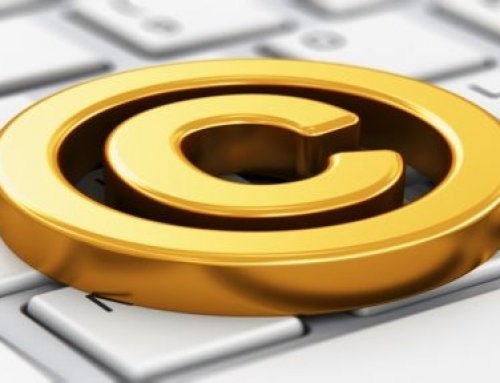How New Musician can protect their music’s Intellectual Property?
Kim Umanoff, General Counsel and Chief Operating Officer of Blue Elan Records, LLC, sat down with IPWatchdog to discuss how musicians and bands who are just starting out can protect the IP of their music. Umanoff is the former managing associate at Liner LLP and has an entertainment law background with extensive experience in contracts and transactional law. First of all, according to Umanoff, any band or musician that is just starting out must surround themselves with a great team early in their career. An integral member of that team is the music attorney. “I can’t stress how important it is to hire an exerienced music lawyer early, and keep that attorney well informed,” she advised.
Often, the first contract signed by an artist can tie up the artist’s career for almost seven years, and can restrict the artist’s creative control. So, it is essential for the artist to hire an attorney before signing any deals to ensure that the contracts are properly negotiated. The music attorney can also help guide musicians in assembling other key members of their team, including a manager, business manager, and an agent. Second, musicians just starting out should learn the business so they can really understand the ramifications of their career decisions. Umanoff recommends taking classes at a local college, reading some of the many primers on the music business, and seeking advice from those who have gone through the process.
What are the steps to be taken by startups ?
Firstly, a contract signed by the artist can tie the artist for maximum of seven years, so it becomes needful for the artist to hire a attorney, music attorney can guide well the beginner. Moreover, the beginner should learn well about the new business, i.e., with what step he could land in trouble.
“When it comes to recording, musicians can legally record and perform cover songs, but they have a few hoops to jump through first,” she explained. “Once a song has been previously recorded and commercially released, any artist may record a cover and can distribute it after obtaining a mechanical license from the rights holder, that is, the owner of the copyright in the composition. Mechanical royalties must then be paid to the publisher of the composition.”
Secondly, a band can publicly perform a cover song, but anyone who plays copyrighted music is required to obtain a performance license, according to Umanoff. The owner of the venue where the song is performed usually has the responsibility for procuring the performance license, and can obtain blanket licenses from the performing rights societies.
Thirdly, when it comes to YouTube, today, musicians should pay close attention to monetization of their IP rights, according to Umanoff. This means making sure that YouTube has reference files, which are samples of the copyrighted materials, so that YouTube can attempt to recognize an artist’s work when incorporated in user-generated content. She said, “The artist must also ensure that their reference files contain accurate metadata so that YouTube knows who to pay when copyrighted works are streamed. Independent companies specializing in confirming that YouTube content is monetized by uploading reference files and manually checking metadata are emerging and growing a new frontier of music technologists.”
She said, “The artist must also ensure that their reference files contain accurate metadata so that YouTube knows who to pay when copyrighted works are streamed. Independent companies specializing in confirming that YouTube content is monetized by uploading reference files and manually checking metadata are emerging and growing a new frontier of music technologists.”
Artist should be vigilant
Artist must be vigilant to police enforcement, which is unavoidable result of a platform that allows user-generated content from any of its billion plus users. Youtube is not directly rsponsible for its content uploaded directly by its users, but does not take precaution to reduce infringement. Youtube has right management system called Content ID to scan all user generated content matches the reference files. When user-generated content matches the reference files, YouTube flags alerts the original rights owners, but this software won’t work unless the rights owners provide the appropriate reference files, per Umanoff.When it comes to trademarking a band name, it basically means the musicians are filing When it comes to trademarking a band name, it basically means the musicians are filing.
Trademarking Brand name
When it comes to trade marking brand name , it basically means the musicians are filing notice with U.S. Patent and Trademark office and having registration approved. But the process is not where the rights originate. The rights to a name or mark can only be secured through use, not through the registration process.
“A brand gets rights to its mark if the brand uses the mark enough so that the public associates the mark with that brand. Once the mark, whether a trademark (for goods) or a service mark is associated in the mind of the public with a brand, that brand can stop another musician from using a mark that is similar enough to cause confusion in the minds of the public,” she said.
How Musician copyright their original music?
The U.S. Code Title 17 provides that an original work fixed in a tangible medium of expression is copyrightable – meaning that pursuant to copyright law, the moment a musician writes down an original song or records a performance of an original song, a copyright exists and is protected under common law. Musicians can also register musical compositions with the U.S. Copyright office online by filling a registration form and uploading an electronic copy of the work or mailing a copy to the Library of Congress, Copyright Office. In a similar way to registering a composition for a copyright, album art can be registered with the Library of Congress copyright office. Just like compositions, protection for original works of authorship, including album art, incepts when the work is created. But, it’s important to note that if musicians are not the creators of their album artwork, they may never own the copyright.
Umanoff explained, “Just because the musician or record label purchases artwork for an album does not mean the copyright was purchased. Instead, musicians or record labels often purchase a license to use the artwork for a certain period, in a certain location, and to exclude other categories of individuals from using that artwork.”





